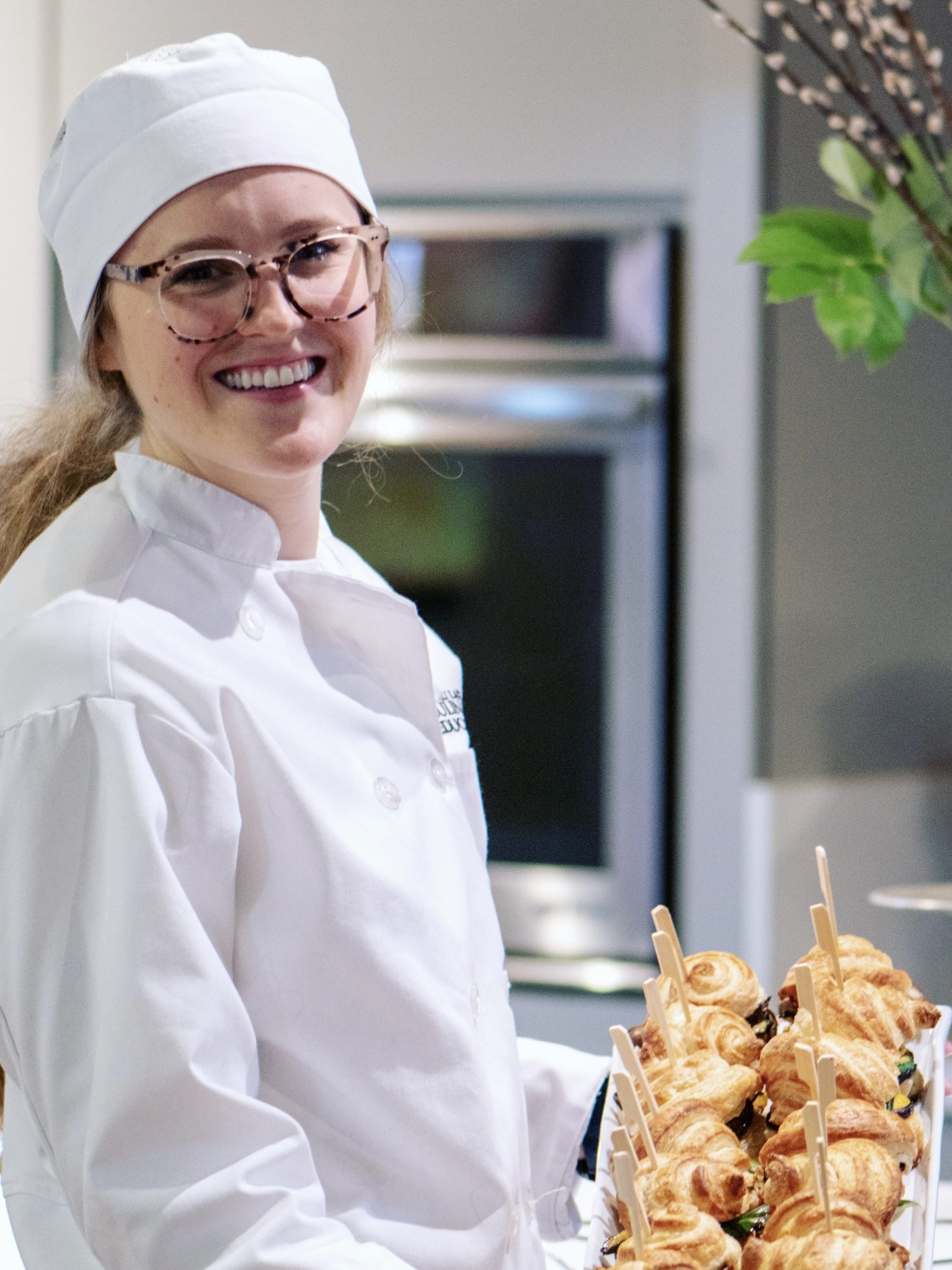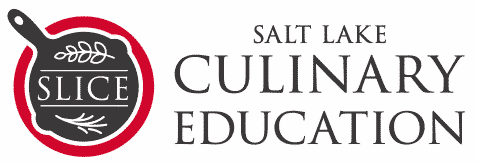
8 Crucial Culinary Terms Every Chef Knows

One of the most important things you’ll learn in school are the culinary terms. Both the technical vocab and cultural jargon of the culinary world are important to know if you intend to work in a professional kitchen (or if you’ve been watching The Bear and just want to follow the dialogue!) If you want to keep up with the pros, here are some culinary terms and phrases you should know:
1. Mise en place
We’ve said it before, and we’ll say it a thousand times: this is possibly the most important culinary term there is. A French phrase meaning “everything in its place,” mise en place refers to the key step of culinary prep work – gathering, washing, trimming, and chopping your ingredients and setting them out for yourself before beginning any actual cookery. Our culinary school in Salt Lake City students become quickly acquainted with the task of preparing mise en place (often casually referred to as “mise-ing”) and learn to appreciate its effect on workflow and efficiency just as quickly.
2. Fond
When you brown a protein or vegetable in a pan, you leave behind something precious – fond. Those caramelized bits left in the pan after searing a steak are caused by a process called the Maillard reaction and are deliciously flavorful. Fond is a good thing!
3. Deglaze
Going hand in hand with fond, to deglaze is to add liquid to a hot pan, which releases the fond stuck to it. You may often see phrases like “deglaze with white wine” in recipes. This step frees the delicious fond bits from the pan and into your dish for maximum flavor potential.
4. Roux
A mixture of fat (usually butter) and flour that is used to thicken dishes like stews or sauces. Knowing how to create a roux and when to use and add one is a basic but priceless skill taught in culinary school.
5. 86’d
Let’s move into some kitchen lingo! This culinary term is used when something is out of stock or removed from the menu – it is 86’d! If your restaurant is serving a mahi mahi special for the weekend and the kitchen runs out of mahi mahi, the staff will be alerted that the item is 86’d. Why 86? No one knows for sure – our best guess is that the term originates from the days of prohibition, when a speakeasy located at 86 Bedford street in Greenwich Village allegedly used the number as a code to warn guests to leave the area when police were spotted.
6. “Behind!”
Along with “corner!” this may be the most commonly heard culinary term in a working kitchen or in an institute setting. Every chef is trained to call out when they are behind someone else or coming around a corner, particularly with something hot or sharp in hand. After a few weeks in culinary school, you will likely find yourself saying “behind” as you squeeze past a stranger in a grocery store aisle. Don’t worry, we’ve all done it.
7. “Heard!”
If you’ve watched a lot of Food Network, you’ve probably heard reality show contestants respond to chefs like Gordon Ramsay with a loud and clear “yes, chef!” when given instructions. While “yes, chef” is a common response used in upscale kitchens, “heard!” is used more often in the average restaurant, particularly here in the US. “Heard” or “heard that” is used all day long between all members of kitchen staff to ensure that instructions, timing updates, 86’s, etc are all heard and understood in the chaos of the kitchen.
8. Stage
Pronounced “stahj,” this is a culinary term that any student should familiarize themselves with. A stage refers to an audition-like job interview period (from a few days to a couple weeks) of working in a restaurant. Similar to an internship, a stage may include a small wage or may only be paid in shift meals. This hands-on tryout allows the executive chef or whoever is making hiring decisions to see you in action and assess whether you are capable of cooking with the level of quality and efficiency they’re looking for in their establishment. After completing your culinary education, you can apply to stage for the kitchens you dream of working in!
Bonus: for your own sake and the sake of the pastry chefs we love, we can’t finish this article without giving you one last vocab term: macaron. These dainty, delicious French cookies are extremely popular at the moment, but every time you call them “macaroons,” a pastry chef sheds a tear.

It’s okay, we’re happy to clarify. Macarons and macaroons are two different desserts. A macaron is a sandwich-like cookie, usually filled with jam or buttercream in the center. A macaroon is a drop cookie made from shredded coconut and often dipped or drizzled in chocolate. While both involve working with egg white, that is where their similarities end. Macaroons are a simple cookie your grandmother might be able to make with her eyes closed, but macarons are a very technical, high-maintenance dessert that takes time to master. Don’t worry, we can teach you the art of the macaron in our baking school in Salt Lake City!
Recent Posts
Categories
Subscribe to Our Mailing List
"*" indicates required fields


